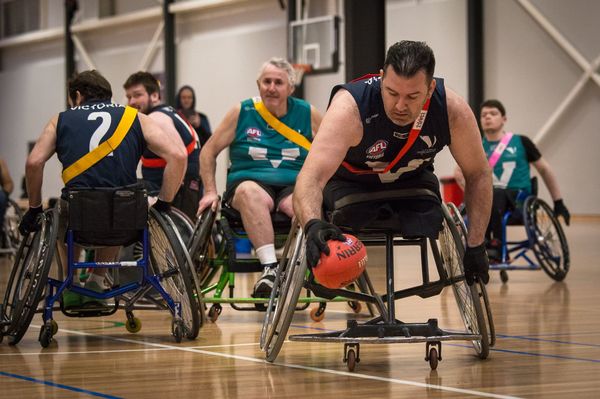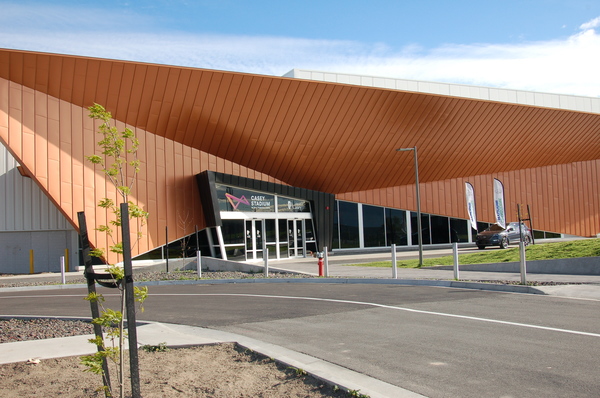
By Brendan Rees
YMCA will inject $780,000 into a further redevelopment of Casey Stadium when stage two works start next year.
A dedicated gymnastic hall and indoor cricket area will be added to the facility.
Since its relaunch in June, Casey Stadium celebrated its 100th day of operation on 19 September after undergoing an $18.3 million redevelopment.
The stadium is home to 10 multi-purpose courts, including a show court with a capacity of over 1000 people.
A Big V All Star Origin basketball series saw the best players from the Big V competition compete in a men’s and women’s all-star game at the stadium, as well as a Victorian Netball League game with over 1000 spectators in attendance at each event.
More than 1600 people watched a closely contested pre-season basketball game between Melbourne United and American college team Wisconsin. Melbourne United hit a match-winning three-point shot with just 2.7 seconds remaining.
YMCA centre manager Ian Jenkins was delighted with what had been delivered at the facility within a short period of time, and predicted significant growth.
“The interest in the facility has been incredible. It truly is a start of the art facility and the community has been very supportive of, and excited by, the venue,” he said.
“We continue to increase our reach with new sports and community activities being added to our programming in the coming months.”
Mr Jenkins said a Southern All Abilities Basketball League had expanded its weekly competition from four courts to six courts, while a suite of inclusive programs offered at Casey Stadium included All Abilities Dance, karate and Sports Zone, which is a multisport program.
Casey Stadium also recently hosted the inaugural Victorian AFL Wheelchair Championships in August.
“The evolving sport was well received by the Casey community and the YMCA and AFL Victoria are working closely to grow the sport within the region,” Mr Jenkins said.
“A key to the initial success of the expanded programs has been the strong relationship with local community groups and peak bodies such as Disability Sport and Recreation.”







